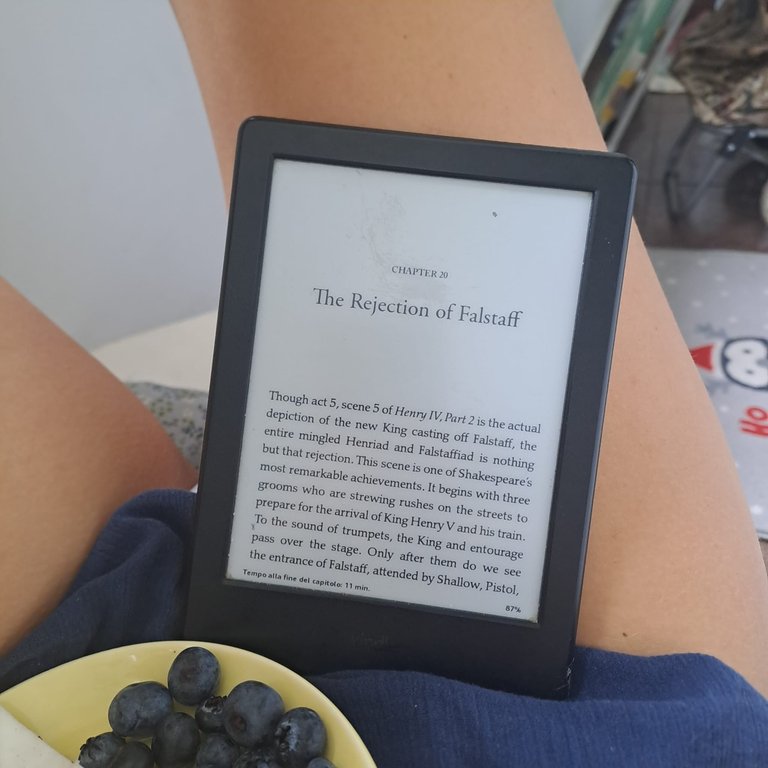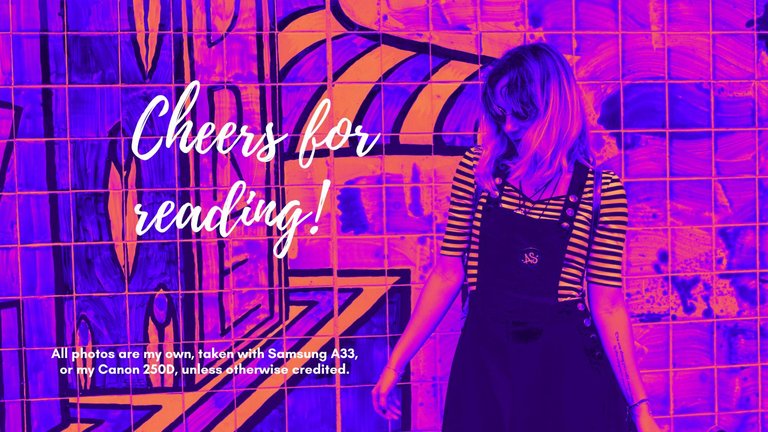When I first read Hamlet, I fucking hated it. It was in translation, mind. Our Romanian language teacher, wonderful woman, assigned it in seventh or eighth grade and I thought "here we go". I had this idea that smart people were supposed to like Shakespeare, quote him at will, that sort of stuff.
Hamlet seemed like total nonsense. Again, it's hard in original. In Romanian, it seems madness. But the long and short of it is, I hated it. Swore off Shakespeare.
Until a couple of years later, still haunted by this "lacking" in my intelligence (why couldn't I appreciate the Bard?), I sat down to see BBC's The Hollow Crown. The fact that Jeremy Irons played Henry IV might've had something to do with it, I'll admit. Other attractive actors on the cast certainly helped, and off to the races I went.
This time, I was completely hooked.
After that, I went through a period of weeks and weeks where I would stay up almost all night every night watching the entire series back to back. Binging before it was a thing. And it's a fairly meaty story, it's four large plays, around 2hrs each. It was my first year of homeschooling, I had nowhere to be in the morning, so I just lived inside Shakespeare's world for a while.
It had nothing to do with Jeremy Irons or Tom Hiddleston or any other attractive man. This time, it was the world that hooked me. I fell into it. I breathed it. I learned soliloquies by heart just sitting there, watching them spoken over and over again. I get obsessive like that sometimes.
Did I get smarter in the space of a couple of years? Probably, though I doubt that had anything to do with it. Suddenly, I was seeing Shakespeare as he's meant to be - seen, not read. Words had now been transformed into people and into feelings. There was rebellious youth, something I felt quite drawn to at 15. There was fleeing into the night with its untold pleasures, all the while knowing you were meant to do more. To be more. It spoke to me on several levels, and I ricocheted between loving Falstaff and loving Prince Hal, in turn.
Years, I resonated with Hal.
O foolish youth, thou seeks the honors that will o'erwhelm thee.

It took Harold Bloom, one of the most brilliant people to do literature ever to make me realize you don't wanna be Hal. That while he's a complex and charming character, he's also savage and vile in a way poor bawdy Falstaff can never truly be. I won't bore you with the details, I know it can get incredibly boring if you don't know it or like it already, but there's this scene where young Prince Hal, sowing his wild oats in the whorehouses on London, calls Falstaff, his mentor and partner in crime and play, a "misleader of youth".
Like youth is something pristine and untouched, just perfect white waiting for the Falstaffs of the world to mislead it. To dirty it. Like I was. Or thought I was. It took me a decade to give myself credit and see that, like Hal, I wasn't nearly as helpless or weak as I thought.
When a charming good boy like Tom Hiddleston plays Hal, he invites you to see the white purity in him. Makes you overlook the cold calculation, the scheming, the promise of a monstrous future. Hal lies. He misleads himself, using Falstaff as much as the old man does him.
It's helpful, looking back through your life and seeing the seeds of who you were going to become, seeing how that played a hand in your misleading. In dirtying you. You need accountability.
Or maybe that's because going through Bloom's book, "Falstaff: Give Me Life", I'm at a different stage in my life, one where accountability and ownership have become paramount. I could still point a finger and blame solely my "misleaders", as Hal does, but then that would be concerning.
It's fascinating to me to read the same play and fall right back into that world, to see myself in it but in such a different way from when I first saw myself in it ten years ago. I wonder what I'll see ten years from now, but for now, I'm appreciating this wonderful, exhilarating growth. This discovery of new.
It's marvelous to me that reading Bloom, I found so many new angles to look at this series of plays I knew by heart. Still. After all these years. And to think I wrote Shakespeare off as poncy nonsense once.

Yes.
I love seeing live performances of Shakespeare. They are just delightful.
I taught Macbeth for years and can revite huge chunks of it. I do love Richard III and Hamlet. Only one that really shits me is Romeo and Juliet. Idiotic impulsive teenagers and an overworked theme or two.
But Tom Hiddleston ...🤤
Macbeth 🤍 that must've been fun.
And I never got Romeo and Juliet either, what's supposed to be romantic about it?
Wow, this was awesome - and now I’m starting to stack up a to-(watch/read/do) list…my own HoneyDue list LOL
Ownership and accountability are paramount? I’d say, from my current standing, you’ve found the master law!
We are capable of responding to everything we experience or sense. How we respond, that is for us to own and weigh. Not responding, well that’s a response too.
When we take Response-Ability for the world around us, and shift how we read that word, we realize we were disenfranchising ourselves as long as we were assuming anything other than us was at the root of our issues. Lol - that feels like a painfully discordant sentence 🤣
Not sure if you mean the series or the book, both recommended. I'd also reccomend Hamlet from Almeida Theatre (I think), with Andrew Scott and with Robert Icke directing. I swear it doesn't feel as difficult or heady as Hamlet is rumored to be, Scott is great for making you feel, even if you're not paying attention to the words. Which is wow.
Dang. I broke the game :D I like the idea of a master law and this being it.
I like that you say that. It seems a lot of people go through life assuming their refusal to act somehow absolves them. It doesn't.
Bingo. It's not discordant at all, from where I'm reading it!
LOL!
Would you believe I never read Hamlet in any capacity?
I will read it as my next thing! …or maybe I’ll cheat and go straight to the theatre version :)
Have you ever read Titus Andronicus? This one also has a cheat available, Titus - with Anthony Hopkins as the battle worn and sword sworn general Titus. It’s a slow start but an intense burn if you can get into it :)
Shakespeare's true brilliance is his timelessness. I shared your disdain for his work at first. I didn't have to read him for school but I wanted to see what all the fuss was about. I think I felt I needed to if I really wanted to be a writer. I remember how grueling of a task it was at first but, after a while, it was like one of those old Magic Eye pictures from the 1990's. A switch was flipped in my brain and it all made sense.
Yes! This is what I try to tell my students, or did, when I taught it. Don't worry about all the details. You'll get the gist and it'll eventually make sense, and when it does, you'll never forget it!
I had no idea you taught! It does take patience. All this talk about Shakespeare makes me want to read him again! : )